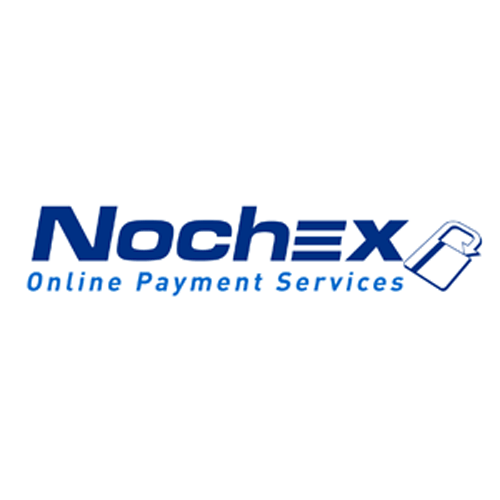
NoChex Review: The Best Alternative Merchant Account?
After carving out a space in the merchant account market, could Nochex be what your business
Get a quote in seconds with our simple form
Remember to keep your budget at the front of your mind when choosing your card machine. If you choose a cheaper option it doesn’t mean it won’t suit your business.
Different card machines work better in certain industries. Some card machines, for example, will be more suited to businesses in which staff are taking payments on the go.
Card machines are essential items for any business and having a good one can make a real difference.
However, whether you’re looking for your first machine or looking to upgrade, choosing the right card reader for your business can be a tricky job.
Card machines aren’t the most glamorous thing to spend your money on. They are, however, an essential part of your business. These days, many people use their cards to pay for the vast majority of their goods and services.
You, then, need a reliable, useable, and cost-effective card machine to ensure your business is not only able to take payments by card but also take them quickly and easily with a device you understand.
As you’re probably aware, most card machines work in conjunction with a merchant account. If you’re unsure what they are, or you want a better deal, click here to find out everything you need to know about merchant accounts.
If you’re confused about all the jargon you’ve just read, don’t worry. While this article focuses on the best card machines for your business, we also have in-depth guides that fully explain all you need to know about taking payments. Explore below:
Different machines offer your business different benefits, and knowing which is the best choice isn’t always clear. That’s why we’ve done most of the research for you, and compiled this list of some of the best card machines on the UK market. We’ve compared them, so you don’t have to.
Card machines come in a variety of shapes and sizes. Some are portable and pocket-sized, while others are large and fixed to your business’s countertop. We’ve covered all bases in this list, so you’ll find a mix of different types of card machines.
Please select the industry that you trade within. This information allows us to tailor your quote.
The terms “best” and “worst” are subjective. What works for you might not work for someone else, so we won’t be putting these card machines in any specific ranked order. Instead, the card machines we have selected can each help a particular kind of business.
We’re going to go through who they’re best suited for, their prices, and why we think they could make a great fit for your business.
| Card Machine | Cost | Transaction Fee |
|---|---|---|
| Dojo Go | £20/mo (rental) | 1.4%-1.8% |
| Ingenico Desk 5000 | Available on request | Varies |
| Square Reader | £19 (excluding VAT) | 1.75% |
| Sumup Air | £39 (excluding VAT) | 1.69% |
| Verifone V200c | Available on request | Varies |
| Zettle Reader 2 | £29 (excluding VAT) | 1.75% |
The Dojo Go card machine offers an easy, portable option for your business to take its payments.
Dojo’s offer to pay £3,000 of the exit fees to your old provider makes them a great option if you want to change providers quickly, and the ability to take card payments 80% faster than the industry average makes the machine attractive to businesses that take payments in quick succession.
The transaction fees are also relatively low compared to many of its competitors; consumer debit and credit card rates can be as low as 1.4% (with a 5p fee per transaction), with business and corporate cards having a slightly higher 1.8% charge.
The Ingenico Desk 5000 is well suited to businesses with physical locations. Often used in conjunction with modern Electronic Point of Sale (EPOS) systems, its countertop design features the ability to print receipts, giving it the edge over many of its competitors.
The cost of using the machine is another attractive consideration; transaction fees that start at only 1% put the machine ahead of the pack in terms of the long-term savings it offers. As well as this, the Desk 5000, despite its name, can be transformed into a mobile unit if needed.
One of the smallest and simplest designs on the market, the Square Reader offers minimum hassle for both the customer and the business. It relies on an app that you have on your phone; when a transaction is entered into the app, the fee is communicated to the card machine which can then accept payment. It’s a modern, simple way of taking card payments.
Apart from the 1.75% transaction fee, you are only required to pay for the machine upfront. There is no monthly contract or obligation to commit to the Square Reader for an indefinite or prolonged period.
While we’ve touched on it here, we’ve got a whole page dedicated to the different fees associated with merchant accounts. Check out our full guide on merchant account fees to find out all you need to know.
You’ll be an expert in no time…
Similar to the Square Reader explored above, the SumUp Air is a simple, small, and modern card reader that makes the most of its simplicity. Also relying on a connection to a phone or tablet app, which can be used to email invoices to a customer, the machine is as customer-friendly as its design suggests. Its keypad adds to its useability and makes paying with a PIN quick and easy.
It’s also friendly to your budget too; the machine itself is all you’ll need to buy and there are no extra fees or monthly payments. Once the machine is yours, the 1.69% transaction fee is all you’ll ever need to pay.
The rapid payment processing capability of the Verifone V200c makes it the perfect choice for fast-paced businesses. Its ability to process payments and print receipts quickly makes it one of the most efficient countertop card machines available; very capable of standing up to your business’s busiest times.
Due to its large memory, the Verifone V200c can also support a range of business apps, which means it’s able to deliver a more engaging customer experience by presenting individualised offers and loyalty benefits to customers at the point of sale.
Like some of the other card machines featured on this list, the Zettle Reader 2’s low cost and lack of contract make it ideal for small businesses or start-ups. Once you buy the reader outright, you will only pay the 1.75% transaction fee. Although slightly higher than rates available elsewhere, it compares well to other machines that also come with a lack of a contract.
The Zettle Reader 2’s fast payout time also compares well to its main competitors (some of which also feature on this list). Its fund transfer time is typically within two working days, which puts it days ahead of some of the other machines on the market. This, coupled with its ability to integrate with several EPOS systems, makes it a clear contender for your small business.
This list has focused on card machines more generally and has featured countertop card machines as well as mobile ones. If, however, your business needs a mobile card machine, we’ve created an article that focuses exclusively on the best mobile card machines available.
While this list is designed to cover all the bases and needs of the modern small business, we haven’t pointed to one specific machine as the ‘best on the market’.
This is because nobody knows the requirements of your business as well as you do. We’re not able to tell you exactly what you need without being told what you’re looking for. You might require the best mobile card machine or the cheapest countertop card machine, or maybe you’re looking for the best card machine rates.
With the information above, you’re able to see what different card machines offer, as well as how they could work for your business but, to get a better understanding of which card machine would suit the specific needs and budget requirements of your business, it would be best to let us compare providers for you.
We can match your needs and wants with the provider that best suits them, doing most of the legwork so you don’t have to. Click below to get started.
The terms “best” and “worst” are subjective. What works for you might not work for someone else, so it’s hard to say what the best card machine is. It will depend on your specific budget, industry, and requirements.
The list above is designed to cover all bases, so it’s a good starting point if you’re looking for a new card machine.
If your business still operates a cash-only policy when it takes payments, or you’re looking to upgrade the cash machines you’ve already got, choosing the right card reader for your business can be a trickier job than it sounds. While card machines aren’t the most glamorous thing to spend your money on, they are an essential part of your business.
We can match you with a card machine that meets your needs and wants, doing most of the legwork so you don’t have to.

After carving out a space in the merchant account market, could Nochex be what your business

They’re two major players in the mobile card machine game, but which is better? They’re two

We explore the hardware, software, and pricing structures of two of the UK’s most popular merchant




Commercialexperts.com helps savvy UK businesses to save time and money by comparing a wide range of essential products and services.
© TFLI 2024 All rights reserved. Licenced by the Information Commissioners Office, (Registration Number Z3585914) Registered in the UK, number 08424810. Registered Office Address: First Floor, Beechwood Court, Springwood Way, Tytherington Business Park, Macclesfield, Cheshire. SK10 2XG.